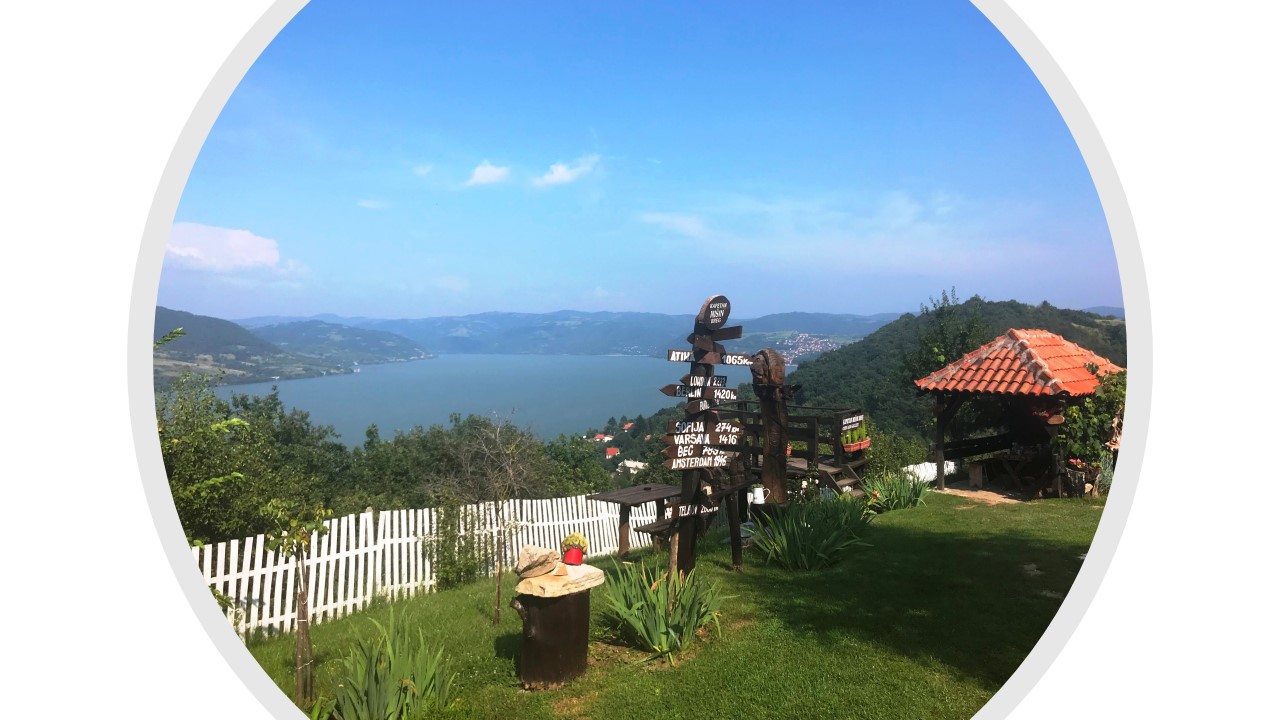DANUrB+ - Christmas Day and Christmas in Đerdap area in Serbia
23-12-2020
During the Christmas Day, younger children usually go from house door to house door and people give them presents (candies, nuts, fruits, money ...). The population of this area calls them "koljindeci" or “koledari”. According to the older locals, in the older times, unmarried man went from house to house in disguise in the evening and sang carols, but today both men and women do it and move through the settlement from early morning until evening. Koljindeci hit the floor with a dotted stick of freshly cut hazel (koljinda) and send messages for health, love and progress in the household by singing. Earlier, they sang songs in the Vlach language, while today the songs are being sung more often in Serbian and rarely a child, usually from a Vlach family, today recites a song in this language. The traditional song, regardless of Serbian or Vlach, contains wishes for the good health of the hosts and family, abundance and progress of the house.
Bună sara la aźun,
Š mîej bună la kraśun,
Dăm kolaku šî krnatu,
Sî ma duk la altu!
On Christmas Eve, straw is brought into the house, which is placed under the table, and an older woman used to crawl on it, imitating a hen, and children followed her and imitated chickens. This custom has been lost today. Once upon a time, meat skewers made of brine (karnje pi brukî) were baked at midnight. Badnjak is brought into the house for Christmas and the layman lights its twigs in the early morning hours. A younger member of the family is usually appointed as a layman and he is given money, a shirt, today a sweatshirt or some other clothing item that the family member needs. Christmas is celebrated in the family circle, česnica is prepared in which a coin is placed, and among the traditional dishes "meat porridge" (burundîu) and "Vlach pancakes" (plaśinte) are prepared. Burundîu is prepared from pork belly, which is cooked for 24 hours, and when the meat is sufficiently cooked, salt and flour are added to it until a mushy mass is obtained. This dish is prepared by the Vlach population only for Christmas. Wallachian pancakes (plaśinte) are prepared from bread dough that is filled with a mass of old Vlach cheese and eggs and then fried in hot oil. Plaśinte are also prepared for other big non-fasting holidays and are an unavoidable part of the festive Vlach table. When the Christmas table is set, all the family members get up and hold the table with their hands, which is previously intended for the happiness and health of the family members, and then for the dead, i.e. all the deceased close and distant relatives. When the purpose is complete, česnica is crushed. Whoever finds a coin is believed to have success in business that year. Badnjak is kept in the house until Little Christmas when it is taken out of the house, and then the fruit trees are decorated with it.
Ritual cookies and Christmas Eve table by grandma Dragica
"Laws" - ritual cookies. Cookies are in the shape of a house with housemates, barrels with wine and brandy, kočine - a chicken coop with chickens, two cows, a sheep with two lambs, pigs with 10 piglets, field, gardens, orchards, carts. All these cookies symbolize the prosperity of the family, good health, good yield, wealth, and renewal. Pieces of each cookie are placed in a glass of wine and each of the household takes a portion before dinner, and after prayer. On the Christmas Eve table there is a rich fasting table, and each of the groceries has a certain symbolism. Pumpkins for health, fish for scabies (we rub the fish between our fingers so that we do not get scabies); walnuts for thieves - whole walnuts in a bowl that are mixed during dinner to prevent thieves from coming. After dinner, the walnuts are placed in all four corners of the house, and after that they are stored throughout the year. During dinner honey is also on the table for health. This honey is stored in a jar throughout the year (from Christmas Eve to Christmas Eve), basil is added to it, and it serves as a balm for a sore spot.
A glass of wine, water and brandy is left on the table so that the holiday - Christmas - does not come to an empty table, and the whole year is full and happy.
Source: „LEGENDS, MYTHS AND FOLK CUSTOMS OF ĐERDAP“, Publisher Museum in Majdanpek, For the publisher Aleksandar Repedzic, Editors and authors Jelena Bujdic Kreckovic, Aleksandar Repedzic

